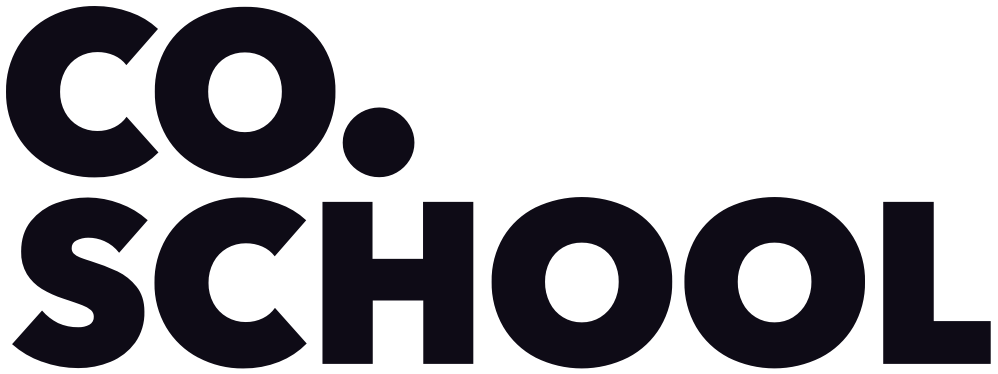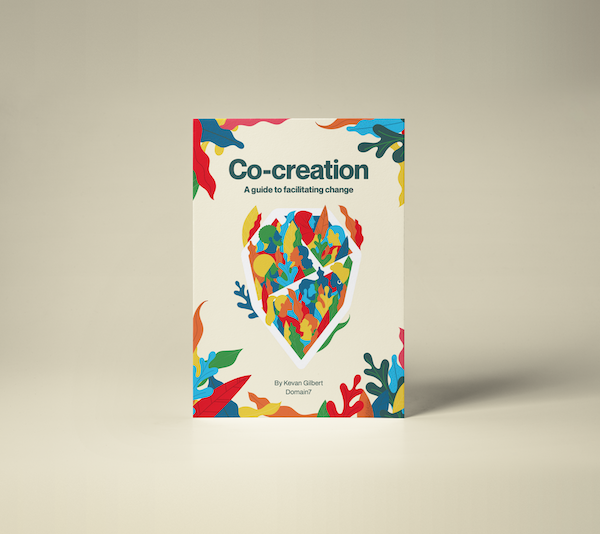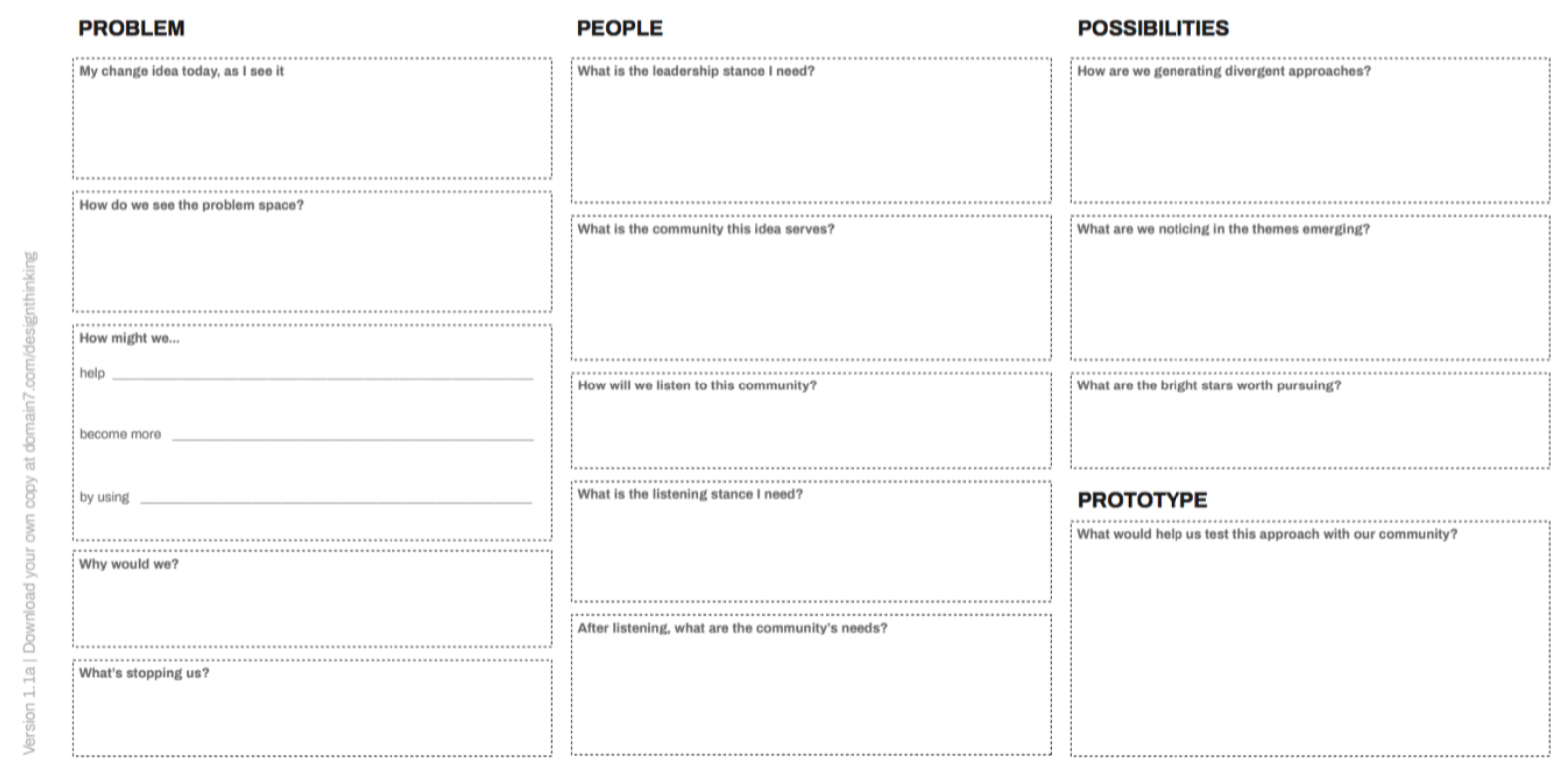Thanks for learning with us!
— Kevan & Krystal (your facilitators)

Can you give us some feedback?
Deepen Your Learning
Learning facilitation is a journey — one that involves developing your own signature style, taking uncomfortable risks, putting yourself out there in front of people, and dealing with the full range of human emotion.
To support you on that journey, this page is yours to keep — use it as a launchpad for continuing your learning!
It contains many resources, classes, tools, links and materials that can help you along the way.
To support you on that journey, this page is yours to keep — use it as a launchpad for continuing your learning!
It contains many resources, classes, tools, links and materials that can help you along the way.
Steal the material from this session
-
Full agenda in Session Lab
-
Original slide deck
-
Mentimeter contributions
Explore some of our on-demand classes
Read the book on Co-creation
Try the design thinking canvas
Explore the toolkit:
Creativity & Human Centered Design
Facilitation & Hosting
Sprints & Workshops
Google Design Sprint Guide
by Jake Knapp
Workshop Exercises
These sites are a goldmine for finding specific agendas and activities.
Gamestorming
Gamestorming
Exercises to Spark Creativity in Ideation
by InnovationLab
by InnovationLab
Web Tools
Powerful, understated tools are a facilitator's secret weapon.
Session Lab: For collaborating designing and planning agendas (also includes resource library)
Session Lab: For collaborating designing and planning agendas (also includes resource library)
Howspace: For AI-powered, asynchronous group contributions
Equity & Ethics Considerations
Design Ethics Reading List
Liberatory Design: a set of tools and resources to integrate the practice of design thinking with a mission toward equity
Liberatory Design: a set of tools and resources to integrate the practice of design thinking with a mission toward equity
Your questions!
How can you develop design thinking and analytical solve problem skills in our team members when you are dealing with pragmatic people?
In a sense, all these tools are extremely pragmatic. What's the easiest way to achieve group consensus? Develop innovative ideas? Break through a disagreement? Facilitation is an extremely pragmatic skillset, and saves countless of hours, days, weeks, months otherwise wasted solving the wrong problem. Invite them to see the pragmatic value that design thinking brings.
Plus, pragmatic people are beautiful. They help us stay grounded and anchored, they help us implement, and they help us think realistically. That type of thinking is welcome and necessary! Especially at the right spot. Try exploring Edward De Bono's "Six Thinking Hats" — it's a way of helping name the type of input you're looking for. Pragmatic people tend to see the dangers/risks (the "black hat") or the information/facts (the "white hat"). At what part of the process would it be good to get some black hat or white hat perspectives? Knowing the answer to that can help you involve them at the right time.
We need many, many diverse ways if thinking of we are going to navigate the future well. We need not diminish the value of one way of thinking over another. We need to welcome pragmatic and creative folks into harmonious partnership, to get the best of our paradoxical ways of seeing the world.
Plus, pragmatic people are beautiful. They help us stay grounded and anchored, they help us implement, and they help us think realistically. That type of thinking is welcome and necessary! Especially at the right spot. Try exploring Edward De Bono's "Six Thinking Hats" — it's a way of helping name the type of input you're looking for. Pragmatic people tend to see the dangers/risks (the "black hat") or the information/facts (the "white hat"). At what part of the process would it be good to get some black hat or white hat perspectives? Knowing the answer to that can help you involve them at the right time.
We need many, many diverse ways if thinking of we are going to navigate the future well. We need not diminish the value of one way of thinking over another. We need to welcome pragmatic and creative folks into harmonious partnership, to get the best of our paradoxical ways of seeing the world.
How to narrow down which strategy to use for storyfinding/listening? (i.e. interviews, circle practice, world cafe)
Lovely question.
Size of group or community is a helpful filter: A community-organization with under 100 people might do well with something like World Cafe. A larger community, like a city, you'd probably want a survey. A smaller group, 50 or less, you could do circle practice with.
Group objective is another helpful filter: what are you trying to achieve?
Kate Sutherland's book "We Can Do This!" as well as adrienne maree brown's "Holding Change" offer some helpful frameworks for determining what your group needs.
Size of group or community is a helpful filter: A community-organization with under 100 people might do well with something like World Cafe. A larger community, like a city, you'd probably want a survey. A smaller group, 50 or less, you could do circle practice with.
Group objective is another helpful filter: what are you trying to achieve?
Kate Sutherland's book "We Can Do This!" as well as adrienne maree brown's "Holding Change" offer some helpful frameworks for determining what your group needs.
How do you best encourage participation and engagement in virtual sessions?
- Give people time to reflect: At least three minutes to think through a question is helpful.
- Allow people alternatives to public speaking: A tool that allows text input is helpful.
- Set the tone in advance: A welcome email or video can go a long way.
- Anchor the meeting with a clear intention: Invite people to engage — better yet, have them co-create a social charter
- Try music: Reflective music can sometimes allow the space for productive quietness. It allows people to think, purposefully, instead of sitting in awkward zoom silence.
- 1-2-4-all: From Liberating Structures, this methods invites you to move from individual reflection, to pairs sharing, to small group sharing, before asking somebody to share in front of the whole group.
- Don't exceed 3 hours
- Don't have any one presenter talking for more than 15 minutes straight
- Design a session that is driven by user participation! Less content, more questions.
How can we integrate this design thinking process into TIG’s culture?
Find where there are moments or teams that need collaboration and imagination — start there.
We're here to help!
Learning facilitation is a lifelong learning journey. I'd love to help you any time you need a hand. Drop me a note anytime at kevan@co.school and we can set up a time to chat through any collaboration and co-creation challenges you might be facing.
Kevan Gilbert
Co.school founder and lead facilitator




